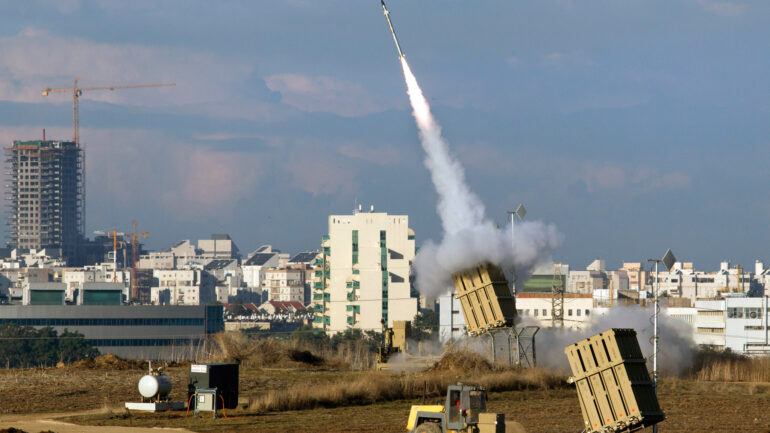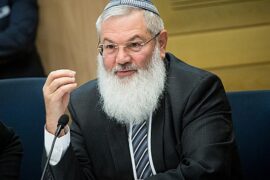The London-based Al-Khaleej Online reported on Thursday that Saudi Arabia is acquiring an Iron Dome system from Israel in order to thwart missile attacks by Yemen’s Houthi forces.
The Houthi rebels, who control most of western Yemen, including the capital city of Sanaa, regularly fire missiles on southern Saudi Arabia, often aiming for Riyadh and the facilities of the Aramco state oil company.
According to the report, Jerusalem initially refused to sell the system to Saudi Arabia due to concerns that it could ultimately be turned against Israel.
Although Israeli-Saudi relations have warmed in recent years, at first due to shared perceptions of a threat from Iran and then later due to aggressive encouragement from United States President Donald Trump, the two countries do not enjoy official diplomatic ties.
Following Israel’s refusal to sell Riyadh the Iron Dome, the Saudis contacted their friends in the Trump White House, who in turn pressured Israel to move forward with the sale in exchange for a Saudi commitment not to endanger Israel or its allies.
The American-brokered deal is scheduled to take place within a few months and the first battery is due to arrive in Saudi Arabia before 2019.
Rafael Advanced Defense Systems, which produces the Iron Dome together with Israel Aerospace Industries, is strongly denying reports of the sale.
Observers, however, have suggested that if true, the move might indicateRafael has developed a newer version of the system.
The Iron Dome was designed to detect, evaluate and intercept missiles, mortars, cannon rounds, helicopters and general arial threats. Launched by Israel in April 2011, the Iron Dome has so far intercepted more than 500 rockets fired from the Hamas-controlled Gaza region into southern and central Israel.
Washington forcing Israel to sell Riyadh the system, likely for the purpose of defending America’s Saudi oil interests, reveals the extent to which Trump’s White House has been working to unify Washington’s Middle East proxies without regard for long-term consequences.
While the prospect of regional alliances is understandably attractive for Israeli leaders following decades of isolation in the Middle East, Jerusalem should be careful not to repeat its destructive habit of making the wrong friends. If Israel is serious about becoming an organic part of the Semitic region and making long-term improvements to its regional standing, it should actively seek to ally not with oppressive forces in the Middle East but rather with those resisting oppression and injustice.
Alliances with those standing against imperialist interests would be more difficult for Jerusalem to cultivate given Israel’s track record and reputation in the region. But despite the obvious challenges, these are the relationships that would really go far in changing Israel’s role in the Middle East.





